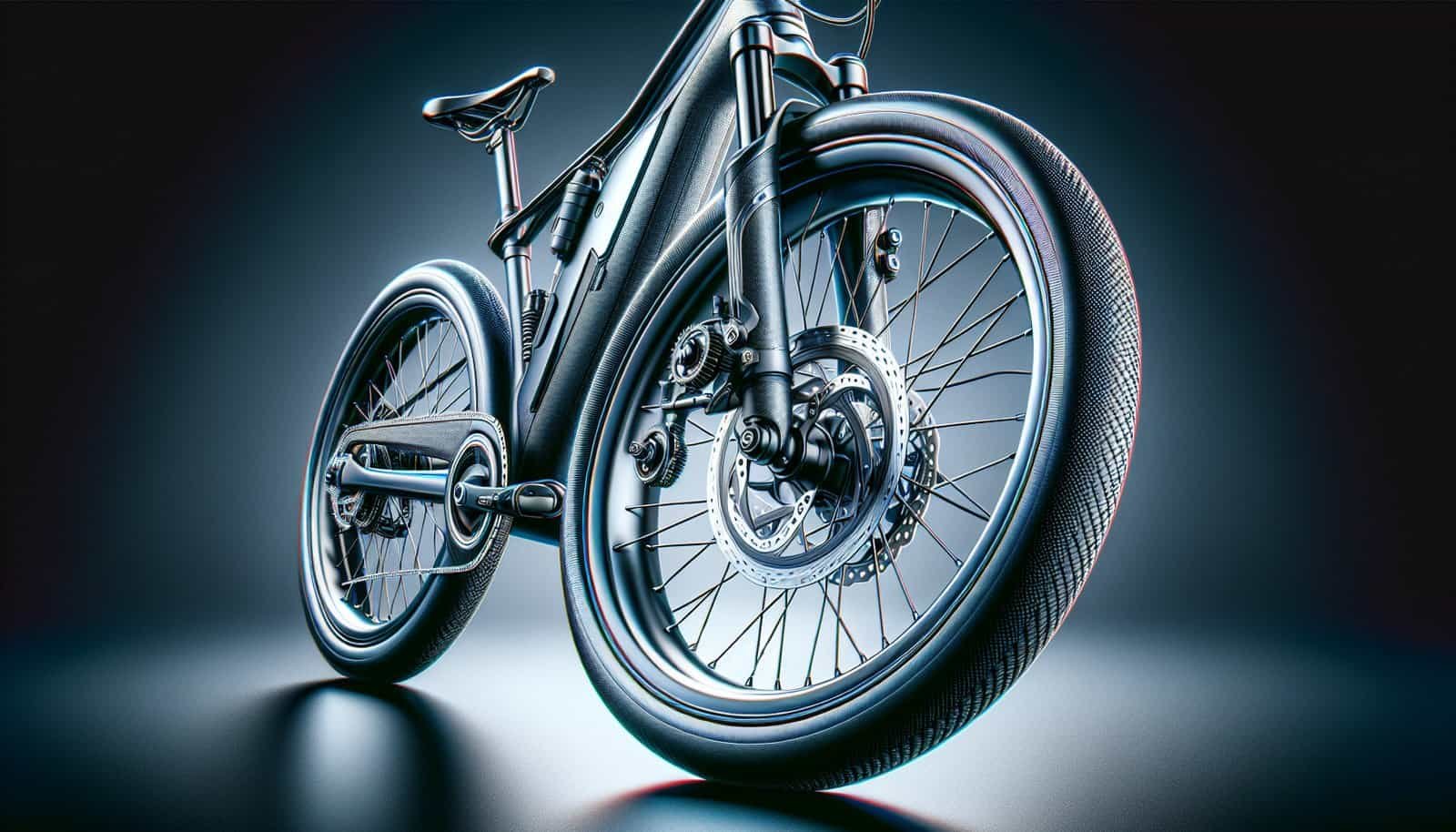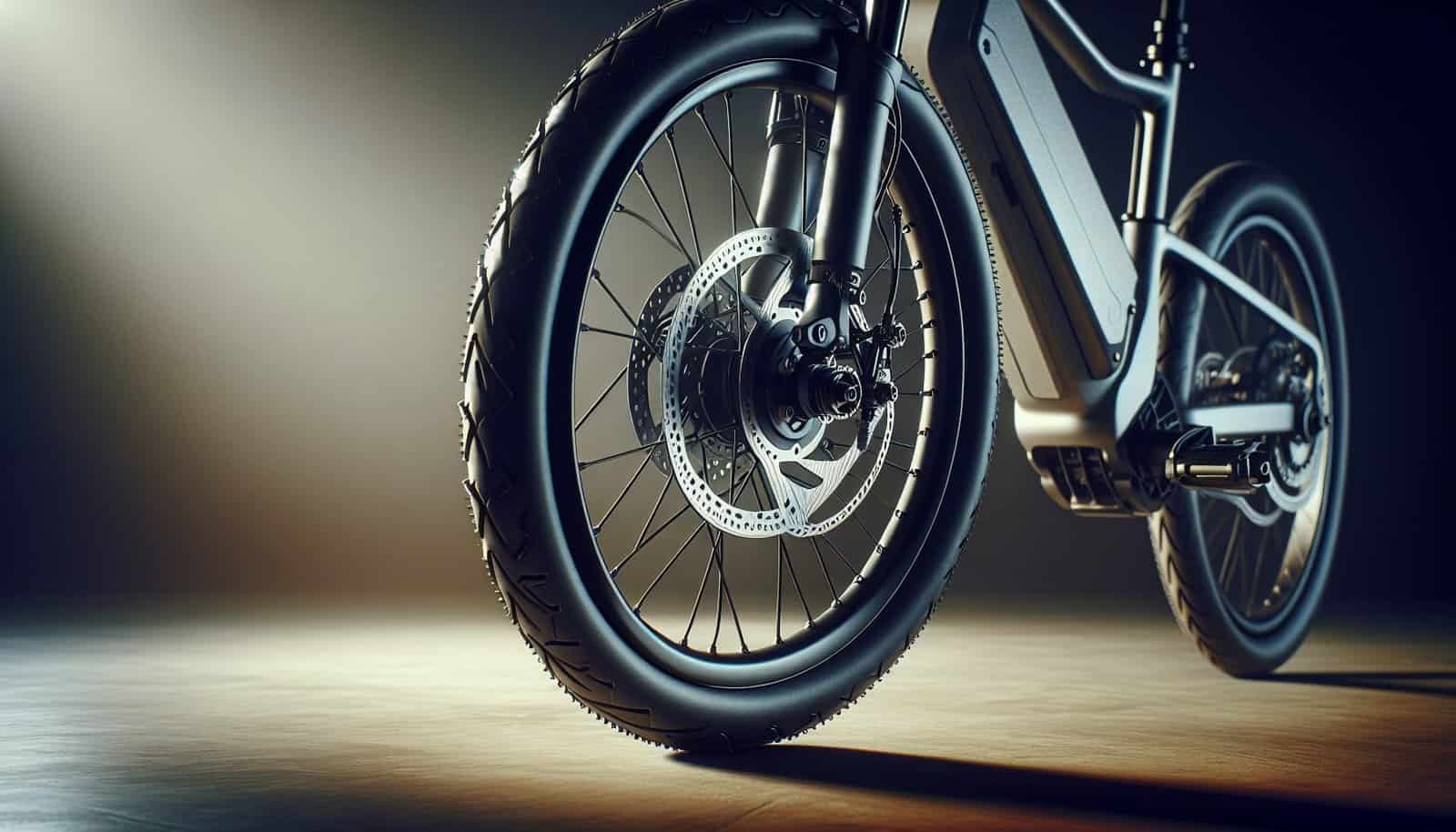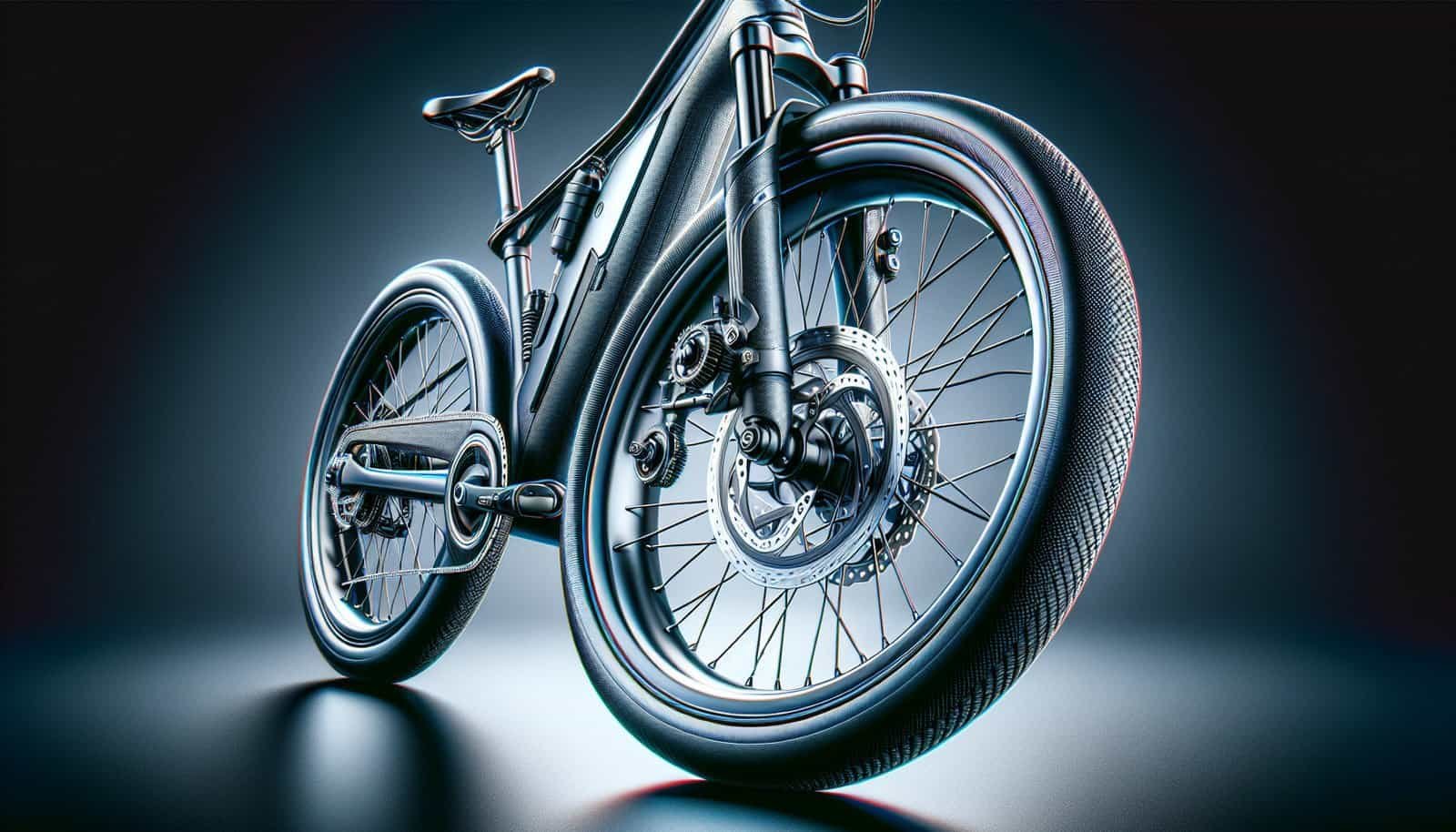Imagine cruising down the streets effortlessly, the wind in your hair and a smile on your face, all thanks to your trusty electric bike. But have you ever wondered just how the weight of your electric bike impacts its performance? Well, today we’re about to shed some light on this fascinating topic. From the hills you conquer to the battery life you experience, the weight of your electric bike plays a vital role in determining just how efficient and enjoyable your ride will be. So, let’s embark on a journey to uncover the secrets behind the connection between weight and performance in the world of electric bikes.

Handling and Agility
Impact on maneuverability
The weight of an electric bike plays a significant role in determining its maneuverability. A heavier bike can be more challenging to handle and maneuver compared to a lighter one. This is particularly noticeable when you need to make quick turns or navigate through tight spaces. The added weight can make the bike feel less responsive, requiring more effort and skill to maintain control.
Effect on cornering abilities
In addition to maneuverability, the weight of an electric bike also affects its cornering abilities. A heavier bike may feel less stable while taking sharp turns, making it harder to maintain balance and control. The increased mass can lead to a slower and less precise cornering experience, requiring you to adjust your riding technique accordingly.
Influence on overall stability
The weight of an electric bike has a direct impact on its overall stability. Generally, a heavier bike tends to provide more stability at higher speeds due to increased traction and improved road contact. However, excessive weight can also compromise stability, especially when it comes to sudden maneuvers or riding on uneven terrain. It’s important to find a balance between weight and stability to ensure a comfortable and secure riding experience.
Comparison with lighter electric bikes
When compared to lighter electric bikes, heavier models typically require more effort and skill to handle. Lighter bikes offer increased maneuverability, making them more agile and easier to control in various riding situations. However, it’s worth noting that heavier electric bikes tend to provide better stability at higher speeds, which may be beneficial for those who prioritize comfort during long-distance rides. Ultimately, the choice between a lighter or heavier electric bike depends on your personal preferences and intended usage.
Acceleration and Speed
The role of weight in acceleration
The weight of an electric bike has a direct impact on its acceleration capabilities. Generally, a lighter bike will have a quicker acceleration due to its reduced mass. The lower weight allows the electric motor to deliver power more effectively, resulting in a faster take-off. On the other hand, a heavier bike requires more energy to overcome its weight, leading to a slower acceleration.
Effect on top speed
The weight of an electric bike can also affect its top speed. While a heavier bike may struggle to reach high speeds due to the increased resistance caused by its weight, it can provide a more stable and controlled ride at those higher speeds. Lighter electric bikes, on the other hand, may have an advantage in achieving higher top speeds due to their reduced mass and improved aerodynamics.
Comparison with lighter electric bikes
When compared to lighter electric bikes, heavier models may have slower acceleration and slightly lower top speeds. However, it’s essential to consider that lighter bikes often sacrifice stability at higher speeds. Heavier electric bikes can offer a more secure and comfortable ride, especially on long-distance rides or when riding in adverse weather conditions. The trade-off between acceleration, top speed, and stability depends on your specific riding preferences and intended usage.
Climbing and Uphill Performance
Influence of weight on climbing ability
The weight of an electric bike plays a significant role in its climbing ability. Heavier bikes may struggle more when tackling uphill terrains due to the extra effort required to overcome their weight. The added mass can make it more challenging to maintain momentum and can quickly drain the battery. Uphill performance is a critical consideration for riders who frequently encounter hilly or steep terrains.
Effect on power delivery
The weight of an electric bike can also affect the efficiency of power delivery during uphill climbs. A heavier bike may require the motor to exert more effort to maintain the desired speed and power output. This increased strain can lead to reduced battery life and a potential decrease in performance during sustained climbs. Riders looking for optimal uphill performance should consider the weight of the bike and its impact on power delivery.
Comparison with lighter electric bikes
Compared to lighter electric bikes, heavier models may face more challenges when it comes to climbing and uphill performance. Lighter bikes have the advantage of less weight, which allows for easier ascent on steep inclines. They require less effort during uphill climbs and can maintain better momentum. However, if you prioritize stability, durability, and improved battery life, a slightly heavier electric bike may be a better choice for your needs.
Battery Life and Range
Impact of weight on battery life
The weight of an electric bike has a direct impact on its battery life. Generally, a heavier bike will require more energy to move and maintain the desired speed, thus consuming more battery power. This increased power consumption can lead to a shorter battery life per charge. It’s important to consider the weight of an electric bike if maximizing your riding range is a priority.
Effect on range per charge
In addition to battery life, the weight of an electric bike can also affect its range per charge. Heavier bikes tend to have a shorter range compared to lighter models due to the increased energy required to move the extra weight. If you have long commutes or plan on taking extended rides, opting for a lighter electric bike might be a better choice to ensure a sufficient range per charge.
Comparison with lighter electric bikes
When comparing electric bikes of varying weights, it’s important to note that lighter models generally offer longer battery life and better range per charge. The reduced weight allows for more efficient energy consumption, resulting in an extended riding range. However, it’s worth considering that heavier electric bikes may still provide an acceptable range for daily commuting or shorter rides. Ultimately, the desired range per charge depends on your individual needs and riding habits.

Braking and Stopping Distance
Effect of weight on braking power
The weight of an electric bike can have an impact on its braking power. Heavier bikes require more force to bring them to a stop, especially at higher speeds. The increased weight means that the brakes need to work harder to slow down and halt the bike effectively. Riders on heavier electric bikes need to be mindful of the potential for longer braking distances.
Influence on stopping distance
The weight of an electric bike can also influence its stopping distance. Heavier bikes generally require more time and distance to come to a complete stop due to their increased momentum. The added mass affects the bike’s ability to decelerate quickly, potentially leading to longer stopping distances. Careful consideration of braking techniques and maintaining a safe following distance is crucial when riding a heavier electric bike.
Comparison with lighter electric bikes
When compared to lighter electric bikes, the stopping distance on heavier models may be longer. Lighter bikes benefit from their reduced weight, allowing for quicker deceleration and shorter stopping distances. However, it’s important to note that heavier electric bikes can still offer reliable and effective braking performance when equipped with quality braking systems. It’s essential to consider your preferred riding style and adjust your braking techniques accordingly when riding a heavier electric bike.
Riding Comfort and Suspension
Impact on ride quality
The weight of an electric bike can have a significant impact on its ride quality. Generally, heavier bikes tend to offer a smoother and more stable ride due to their increased weight and improved traction on the road. The added mass helps dampen vibrations and absorb road imperfections, resulting in a more comfortable riding experience. However, excessively heavy bikes may compromise maneuverability and responsiveness, affecting overall comfort.
Effect on suspension performance
The weight of an electric bike also affects its suspension performance. Heavier bikes put more stress on the suspension components, potentially leading to increased wear and reduced effectiveness over time. It’s essential to consider the weight of the bike in relation to its suspension system to ensure optimal performance and longevity.
Influence on shock absorption
An electric bike’s weight directly influences its shock absorption capabilities. Heavier bikes tend to have better shock absorption, thanks to their increased weight and larger contact area with the road. This can result in a smoother and more comfortable ride, particularly when encountering bumps, potholes, or uneven surfaces. Lighter electric bikes may provide less shock absorption, leading to a potentially rougher ride.
Comparison with lighter electric bikes
When compared to lighter electric bikes, heavier models generally offer better ride quality and improved suspension performance. The added weight enhances shock absorption, making for a more comfortable and stable ride on various road surfaces. However, it’s important to consider that lighter bikes excel in maneuverability and agility, which may be preferable for riders who prioritize a sportier and more responsive ride experience.

Battery and Motor Efficiency
Influence of weight on motor efficiency
The weight of an electric bike can influence the efficiency of its motor. Heavier bikes require the motor to work harder to propel the additional weight, potentially leading to reduced motor efficiency. The increased strain on the motor can result in higher energy consumption, shorter battery life, and decreased overall performance. When considering an electric bike, it’s important to find a balance between weight and motor efficiency to optimize the riding experience.
Effect on overall energy consumption
The weight of an electric bike has a direct impact on its overall energy consumption. Generally, heavier bikes require more energy to move and maintain speed, leading to increased energy consumption. This higher energy demand can result in shorter battery life, reducing the riding range per charge. Riders who prioritize energy efficiency should consider lighter electric bikes to maximize battery life and minimize energy consumption.
Comparison with lighter electric bikes
Compared to lighter electric bikes, heavier models may have reduced motor efficiency and higher energy consumption. Lighter bikes benefit from their reduced weight, allowing for more efficient energy delivery from the motor to the wheels. This enhanced efficiency results in improved battery life and longer riding range per charge. However, it’s important to note that heavier electric bikes can still provide satisfactory motor performance and energy efficiency, depending on the specific model and components.
Portability and Maneuvering
Ease of transportation
The weight of an electric bike directly impacts its portability. Heavier bikes can be more challenging to transport, requiring more effort to lift and handle. This can be a significant consideration if you frequently need to transport your electric bike in a vehicle or carry it up stairs. Lighter electric bikes offer increased portability and ease of transportation, making them more convenient for those who require frequent mobility.
Convenience when parking
The weight of an electric bike also affects its convenience when parking. Heavier bikes may be more difficult to secure and maneuver into tight parking spaces. The added weight can make it more challenging to find suitable parking spots or lock up the bike securely. Lighter electric bikes provide increased convenience in parking situations, allowing for easier maneuverability and more flexibility when finding suitable parking spaces.
Effect on off-road capabilities
The weight of an electric bike influences its off-road capabilities. Heavier bikes may struggle more in off-road environments, especially on rough terrains or when encountering obstacles. The added weight can make it more challenging to navigate through uneven surfaces or maintain stability on loose ground. Lighter electric bikes offer improved off-road capabilities, allowing for better maneuverability and agility in challenging conditions.
Comparison with lighter electric bikes
When compared to lighter electric bikes, heavier models generally offer reduced portability and convenience when it comes to transport and parking. Lighter bikes excel in these areas, making them more suitable for riders who prioritize ease of portability and parking. However, it’s important to note that heavier electric bikes can still handle off-road conditions, albeit with some limitations due to their weight. The choice between a lighter or heavier electric bike should consider your specific needs and intended usage.

Tire Wear and Maintenance
Impact of weight on tire lifespan
The weight of an electric bike can affect the lifespan of its tires. Heavier bikes put more pressure and stress on the tires, potentially causing faster wear and tear. The increased weight can lead to more frequent tire replacements, which can add to the overall maintenance costs of the bike. It’s important to consider the weight of an electric bike and its impact on tire lifespan when planning for regular maintenance.
Effect on tire pressure
The weight of an electric bike also affects tire pressure and maintenance. Heavier bikes require higher tire pressure to support the added weight and maintain optimal performance. Regular monitoring and adjustment of tire pressure are necessary to ensure safety and prevent premature tire wear. Lighter electric bikes may require lower tire pressures due to their reduced weight.
Influence on general maintenance
The weight of an electric bike can influence the overall maintenance requirements. Heavier bikes may require more frequent maintenance to ensure optimal performance and prevent premature component wear. The increased weight can place more stress on various parts of the bike, including the drivetrain, suspension, and braking systems. Regular inspections, lubrication, and cleaning are essential for keeping a heavier electric bike in top condition.
Comparison with lighter electric bikes
When compared to lighter electric bikes, heavier models tend to result in faster tire wear and potentially higher maintenance requirements. Lighter bikes put less stress on the tires, resulting in longer tire lifespan. Additionally, lighter electric bikes may require less frequent maintenance due to the reduced weight on various components. However, it’s important to note that proper maintenance practices are essential regardless of the weight of the electric bike to ensure a safe and reliable riding experience.
Cost and Price
Considerations for manufacturing
The weight of an electric bike influences the manufacturing process and associated costs. Heavier bikes may require sturdier materials and components to handle the added weight, leading to potentially higher manufacturing costs. The increased weight also affects the design and engineering aspects of the bike, requiring additional consideration during the manufacturing process. These factors can contribute to higher production costs for heavier electric bikes.
Effect on materials and components
The weight of an electric bike can impact the materials and components used in its construction. Heavier bikes may require stronger and more durable materials to support the increased weight and ensure optimal performance. This can result in higher manufacturing and material costs compared to lighter models. Additionally, components such as brakes, suspension, and drivetrain may need to be more robust to handle the added stress caused by the weight.
Influence on retail price
The weight of an electric bike can influence its retail price. Heavier bikes typically have higher manufacturing costs, which can translate to a higher retail price for consumers. The added weight and potentially more robust components contribute to the overall cost of the bike. When comparing electric bikes of different weights, it’s essential to consider the pricing implications and determine the best value for your budget.
Comparison with lighter electric bikes
Compared to lighter electric bikes, heavier models generally have higher manufacturing and retail prices. The increased weight requires stronger materials and components, leading to additional production costs. Lighter bikes may offer a more affordable option for those on a tighter budget, although they may have specific performance limitations due to their reduced weight. When considering the cost and price of an electric bike, it’s crucial to find the right balance between weight, performance, and your budget constraints.
In conclusion, the weight of an electric bike has a significant impact on its performance in several key areas. From handling and agility to acceleration and speed, climbing ability, battery life and range, braking and stopping distance, riding comfort and suspension, battery and motor efficiency, portability and maneuvering, tire wear and maintenance, as well as cost and price considerations, the weight of an electric bike must be carefully considered when choosing the right model for your needs. Ultimately, it’s important to find a balance between weight, performance, and overall riding experience to ensure maximum satisfaction and enjoyment from your electric bike.


